Mathematicians beat the bookies.
Bookmakers can be beat if you consider that they sometimes expose not the most profitable factors for themselves in order to reduce risks. A group of mathematicians analyzed the data of football rates for ten years and developed a strategy with which they won a thousand dollars from the bookmakers. After that, the bookmakers restricted their ability to bet.
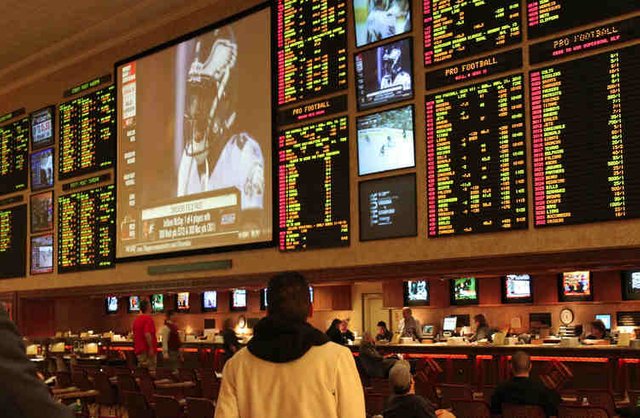
For many years, analysts have collected a huge amount of data on football matches, which allows you to accurately predict their outcome, given a variety of factors. For example, when calculating the probability of a team to win a match, the results of previous matches, the number of goals scored and missed in past games, the place of the game ("at home" or "away"), the players' injuries and even the weather promised by the weather forecasters are taken into account. Based on the predicted results, bookmakers calculate the optimal rates and slightly adjust them to stay in the win.
However, sometimes bookmakers expose the odds not so profitable for themselves, as usual. This is done in order to attract more customers, to balance rates and avoid too large losses. For example, if a lot of people bet on winning one team, the bookmakers raise their bets a bit to win her opponent. Due to this, some people will prefer not to put on a "winning" team, and the bookmakers somewhat understate the probability of winning for the bookmaker's clients in comparison with the actual probability of team victory. It was this fact that mathematicians used to beat them.
To do this, they analyzed the results and rates for 479,440 football matches, conducted in 818 leagues for the period from 2005 to 2015, and derived a formula that allows us to calculate the true probability of winning the team according to the probabilities announced by the bookmakers. Proceeding from the true values of probability, they chose which team to put money on. Then they tested the developed strategy on the historical summary of closing rates (that is, bets that are announced right before the start of the game) for the specified period. The results of the algorithm they compared to the results of the model player, who makes bets quite accidentally. In all cases, the rate remained fixed and equal to fifty dollars.
It turned out that the strategy developed by mathematicians allows to steadily win and far exceeds the strategy of random rates. While random players averaged about ninety thousand dollars on average, a player who knew the true probabilities earned almost one hundred thousand over the same time period and for the same available rates. According to the authors, only one out of a million random players can achieve this result.
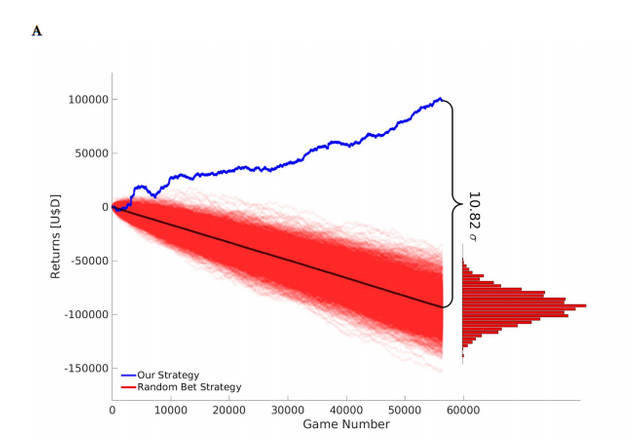
Source "A ten-year span."
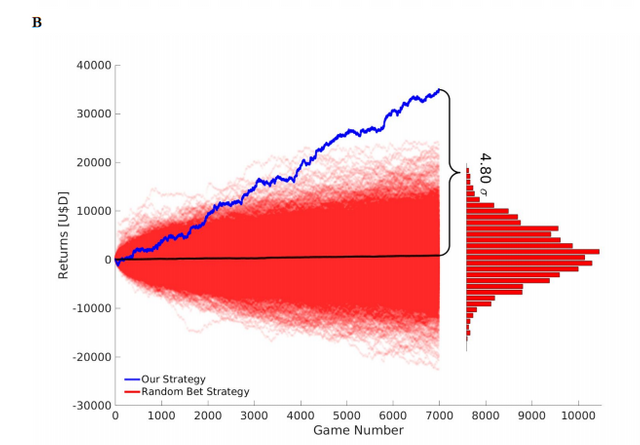
Source " Real time."
This prompted scientists to check their strategy for real games. However, before making real bets, they checked it out in virtual games in which they took information about betting and match results from the bookmaker sites, and then compared how much money could be won by adhering to this strategy. The strategy worked just as well: for the period from September 1, 2015 to February 29, 2016, scientists processed data for more than thirty thousand games and "won" almost thirty-five thousand dollars, making about seven thousand virtual bets.
Then the mathematicians applied the developed strategy to real rates and earned in just five months a little less than a thousand dollars - and this despite the fact that the authors missed many opportunities to put money, as they did it manually. After some time, bookmakers began to limit their ability to bet, for example, reducing the amount available for the bet. After this, the mathematicians found it impossible to continue the experiment and stopped playing. The authors note that they did not violate any rules adopted in the betting industry.
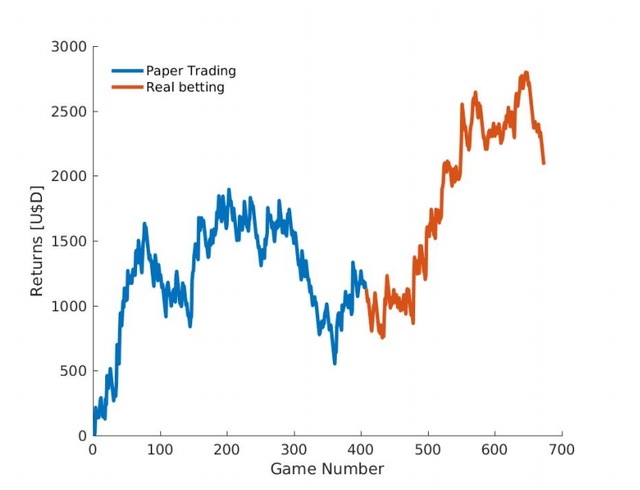
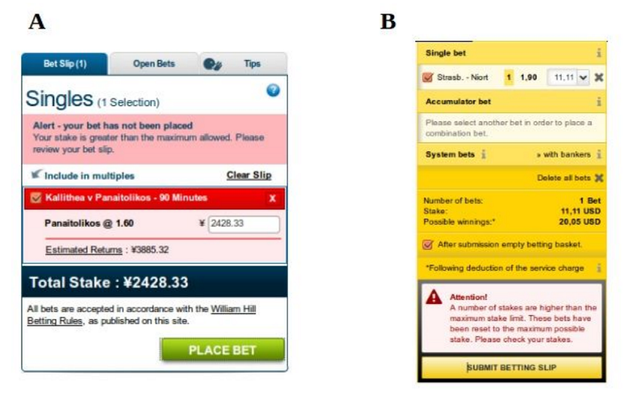
Source " Examples of bookmaker site warnings".
Mathematicians were not the first to try to beat the bookies. However, the peculiarity of the strategy developed by them is that they did not try to build a better predictive model, like the previous "adventurers", but believed that bookmakers initially possess better information, they simply do not always expose the most advantageous coefficients for themselves.
My grandfather once worked at Sportsman's Park Race Track in Chicago. He used to brag in his elder years how he had received a $1 tip once from the ledgendary Al Capone. I remember him telling me once about reading the race sheets. He said "When it comes a time you begin to understand all this" while pointing to all the stats and numbers, "... it will time to stop betting!" In other words, the more you know, the less favorable your odds. "Think long-think long" I believe is how the saying goes!
Pleasant memory, thanks for sharing.
Yes, we are told: "many knowledge - many sorrows."
This is an interesting post. Bookmakers purposely put out odds to attract new players and these mathematicians were able to identify those situations and bet accordingly. This is an excellent use of math. In this article, you say that bookmakers use their tools to accurately predict the outcome of the game, but isn't it more important that they accurately predict where people will bet? From my limited understanding of bookmaking, isn't their goal to get even money on both sides of their lines and make money on the vig?
Inscrutable ways bookie.